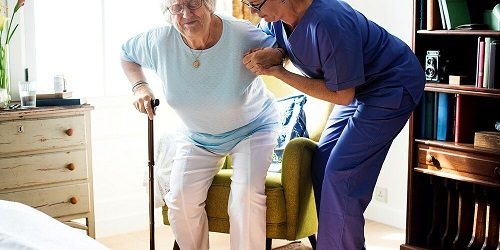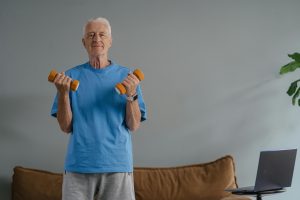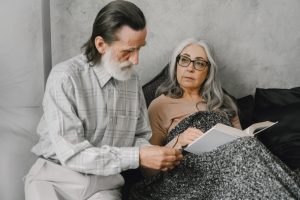A stroke survivor will either move into a long-term care facility, an intensive rehab center, or their home after being released from the hospital, depending on how well they can now function. If they are permitted to go back home, they will require assistance from family members and, in many cases, in-home personal support staff while they proceed with their recovery.
As a family caregiver, you’re accepting a loving role that will assist the individual in overcoming obstacles and making the most of their stroke recovery. Here are some tips to assist you in giving long-term care for stroke recovery:
Make sure they continue their rehab exercise:
One of the most important components of stroke recovery is rehab exercise. It improves movement over the long term and helps in brain restoration. Ensure your loved one continuously performs the rehab activities on the list you receive from their medical staff until they have recovered to the maximum extent possible. Their progress could regress if they are not diligent in this regard.
If they are capable of the movements, you can also include some specific exercises for stroke patients in their program.
Making home improvements to prevent falls:
The leading cause of injuries in adults over 65 is falling. When recovering from a stroke, a loved one’s recovery may be hampered by a fall. With these ten easy steps, you can reduce the danger of a fall in their house and encourage them to practice balance exercises for seniors, which can improve home security and help prevent slips and falls. Also, make sure that you have an effective daily routine for a Dementia patient’s lifestyle.
Ensure that they take part in therapy sessions:
The brain will typically start to repair itself within the first three months after the stroke. The duration varies for each person and is difficult to predict, which is why this phenomenon is referred to as spontaneous recovery. The improvement of recovery at this time depends on your loved one’s participation in their physical, occupational, and speech therapy programs, so make sure they attend each session.
Communicate openly with your loved one’s medical staff:
In contrast to other human body organs, medical research is still unable to explain the mysteries of the brain fully. The effects of a stroke can differ significantly from person to person because of the complexity of this component of our bodies.
Openly communicate and Work carefully with your loved one’s medical team who can assist in customizing their recovery to the individual’s specific condition. Also, make sure that you know how to talk to the patient nicely.
Watch out for indications of depression:
A stroke can change a person’s physical capabilities in various ways that are noticeable. The psychological impacts a stroke survivor may experience are less visible but not less significant.
People who have suffered a stroke are frequently affected by depression. According to a recent study, depression strikes between 25% and 40% of stroke survivors. This might be because:
- As a result of the stroke, the brain has undergone biochemical alterations.
- When the person realized how the stroke had affected them.
- Worry about money.
- Feeling bad that they might be a burden to others.
- Fear of having another stroke.
There are symptoms of depression in a stroke survivor and what to do if you notice them, such as getting outside assistance for psychiatric counseling. Always remember to actively listen to the stroke survivor and provide constant love, empathy, and support.
Lowering the chance of another stroke:
The risk of having another stroke is 15 times higher in stroke survivors than in non-stroke survivors. It is much more important for your loved one to take steps to prevent strokes. A proactive approach will help their stroke recovery program as well.
Age and heredity are two risk factors for stroke that cannot be changed. The proper diet, exercise, weight control, and quitting smoking are just a few of the measures your loved one can do to help prevent another stroke.
Recognize the symptoms of a second stroke:
Knowing the symptoms of a stroke will help you respond quickly and increase your chances of making a full recovery. These symptoms can include vertigo, sudden disorientation, changes in eyesight, arm weakness, slurred speech, facial drooping, and severe headaches.
When necessary, seek assistance:
It is an honorable and compassionate duty to care for someone who has survived a stroke. However, It can also be a time-consuming and difficult pastime that stops you from engaging in other vital elements of your life, such as your family, job, and social activities. You may also have occasional feelings of isolation and be confused about where to turn for help.
Additionally, it’s a good idea to employ qualified caregivers to visit the home and assist you with your caregiving responsibilities. Never hesitate to seek assistance. It will enhance the chances of your loved one’s recovery and provide you the freedom to take vacations from caregiving when you require them.
Your loved ones can get support from Lenity Management Community as they recover from a stroke. We provide live-in or on-demand 24/7 nursing care provided by trained professionals.
Lenity Management staffs are highly qualified to offer quality, sensitive care while exhibiting upbeat attitudes and encouraging smiles. Please get in touch with us at any time if you have any inquiries regarding our specialized home and elder care service.





